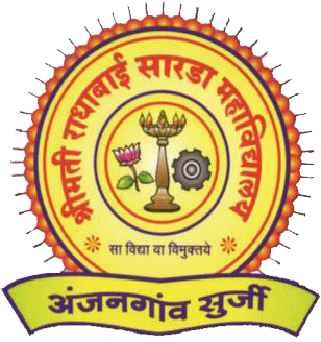Code of Conduct
CODE OF PROFESSIONAL ETHICS
I. TEACHERS AND THEIR RESPONSIBILITIES:
Whoever adopts teaching as a profession assumes the obligation to conduct himself / herself in accordance with the ideal of the profession. A teacher is constantly under the scrutiny of his students and the society at large. Therefore, every teacher should see that there is no incompatibility between his precepts and practice. The national ideals of education which have already been set forth and which he/she should seek to inculcate among students must be his/her own ideals. The profession further requires that the teachers should be calm, patient and communicative by temperament and amiable in disposition.
Teachers should:
(i) Adhere to a responsible pattern of conduct and demeanour expected of them by the community;
(ii) Manage their private affairs in a manner consistent with the dignity of the profession;
(iii) Seek to make professional growth continuous through study and research;
(iv) Express free and frank opinion by participation at professional meetings, seminars, conferences etc. towards the contribution of knowledge;
(v) Maintain active membership of professional organizations and strive to improve education and profession through them;
(vi) Perform their duties in the form of teaching, tutorials, practicals, seminars and research work conscientiously with dedication;
(vii) Co-operate and assist in carrying out functions relating to the educational responsibilities of the college and the university such as: assisting in appraising applications for admission, advising and counseling students as well as assisting the conduction of university and college examinations, including supervision, invigilation and evaluation; and
(viii) Participate in extension, co-curricular and extra-curricular activities including community service.
II. TEACHERS AND THE STUDENTS:
Teachers should:
(i) Respect the right and dignity of the students in expressing their opinion;
(ii) Deal justly and impartially with students regardless of their religion, caste, political, economic, social and physical characteristics;
(iii) Recognize the difference in aptitude and capabilities among students and strive to meet their individual needs;
(iv) Encourage students to a improve their attainments, develop their personalities and at the same time contribute to community welfare;
(v) Inculcate among students scientific outlook and respect for physical labour and ideals of democracy, patriotism and peace;
(vi) Be affectionate towards the students and not behave in a vindictive manner towards any of them for any reason;
(vii) Channelize the potential of students to achieve merit.
(viii) Make themselves available to the students even beyond their class hours and help and guide students without any remuneration or reward;
(ix) Aid students to develop an understanding of our national heritage and national goals; and
(x) Refrain from inciting students against other students, colleagues or administration.
III. TEACHERS AND COLLEAGUES
Teachers should:
(i) Treat other members of the profession in the same manner as they themselves wish to be treated;
(ii) Speak respectfully of other teachers and render assistance for professional betterment;
(iii) Refrain from lodging unsubstantiated allegations against colleagues to higher authorities; and
(iv) Refrain from allowing considerations of caste, creed, religion, race or sex in their professional endeavour.
IV. TEACHERS AND AUTHORITIES:
Teachers should:
(i) Discharge their professional responsibilities according to the existing rules and adhere to procedures and methods consistent with their profession in initiating steps through their own institutional bodies and/or professional organizations for change of any such rule detrimental to the professional interest;
(ii) Refrain from undertaking any other employment and commitment including private tuitions and coaching classes which are likely to interfere with their professional responsibilities;
(iii) Co-operate in the formulation of policies of the institution by accepting various offices and discharge responsibilities which such offices may demand;
(iv) Co-operate through their organizations in the formulation of policies of the other institutions and accept offices;
(v) Co-operate with the authorities for the betterment of the institutions keeping in view the interest and in conformity with dignity of the profession;
(vi) Should adhere to the conditions of contract;
(vii) Give and expect due notice before a change of position is made; and
(viii) Refrain from availing themselves of leave except on unavoidable grounds and as far as practicable with prior intimation, keeping in view their particular responsibility for completion of academic schedule.
V. TEACHERS AND NON-TEACHING STAFF:
(i) Teachers should treat the non-teaching staff as colleagues and equal partners in a cooperative undertaking, within every educational institution; and
(ii) Teachers should help in the function of joint staff-councils covering both teachers and the non-teaching staff.
VI. TEACHERS AND GUARDIANS
Teachers should:
(i) Try to see through teachers' bodies and organizations, that institutions maintain contact with the guardians, their students, send reports of their performance to the guardians whenever necessary and meet the guardians in meetings convened for the purpose of mutual exchange of ideas and for the benefit of the institution.
VII. TEACHERS AND SOCIETY
Teachers should:
(i) Recognize that education is a public service and strive to keep the public informed of the educational programmes which are being provided;
(ii) Work to improve education in the community and strengthen the community's moral and intellectual life;
(iii) Be aware of social problems and take part in such activities as would be conducive to the progress of society and hence the country as a whole;
(iv) Perform the duties of citizenship, participate in community activities and shoulder responsibilities of public offices;
(v) Refrain from taking part in or subscribing to or assisting in any way activities which tend to promote feeling of hatred or enmity among different communities, religions or linguistic groups but actively work for National integration.
DISCIPLINE & CODE OF CONDUCT FOR STUDENT
1. It is obligatory on the part of the students to possess prescribed text books and other relevant study materials.
2. Systematic, satisfactory & timely completion of home assignments is mandatory. Any failure on this front will be deemed as an act of indiscipline and may invite fine. The college will seriously consider this fact while determining eligibility of students for University / Board exams.
3. Students must not cause damage to or destroy college property. Any misuse or damage caused intentionally or unintentionally will invite stringent punishment. All the students from the class involved in the misact will be held responsible collectively for any damage in the particular class, unless the individual offender is identified.
4. Students shall maintain decorum in the college premises. Any indiscipline or misbehaviour, both inside and outside the college premises will attract severe punishment. The names of students found guilty of misconduct will be removed from the college rolls.
5. Students must enter their respective classes before the period bell goes. They should utilize their free time in the college library. Students should not cause any disturbance to teaching as well as general functioning of the college.
6. No student will be allowed to participate in or attend any activity in the college without identity card.
7. The students are directed to record permanent address / contact numbers of their parents / guardians. Any change in this respect must be brought to the notice of college office immediately.
8. It is the responsibility of the students / parents / guardians to find out to which scholarships (enlisted on page no. 13/14) the student is eligible for and to apply accordingly for the same along with the required documents.
9. Any difficulty faced by the student should be brought to the notice of the Principal or the Registrar.
10. Smoking, chewing of gutka, pan, tobacco or taking any banned drugs and narcotics etc. on the college campus are strictly prohibited.
11. No student will send anything concerning the college for publication without prior permission of the Principal.
12. Any political movement, demonstration or agitation involving the name of the college is strictly prohibited.
13. Students shall see the college notice board daily. The college will not be held responsible for any loss arising out of any negligence in this regard.
14. Ragging is strictly prohibited. Any student found guilty will be proceeded against under Maharashtra Government Ordinance No.33 dated 15 May, 1999 and will be expelled from the college forthwith.
15. No outside artists will be allowed to take part in the college cultural activities.
16. Students must keep with them photocopies of all the documents submitted to the college office. The documents once submitted will not be returned for any temporary cause. Photocopies of the documents may be made available to the student under extraordinary conditions on payment of Rs.10 per copy.
17. Students must collect their original documents, if any, within three years of leaving the college. Thereafter Rs.10 will be charged as fine per document per year.
18. The details of the uniform wearing as finalised by the college are given below:
19. Women's Grievance Committee has been formed in the college by the Notification No. SGBAU 772012 dt. 21/06/2012.
20. Be honest, upright and straightforward in all your dealings.
21. If you are intelligent, let your classmates be benefitted by your intelligence.
22. Utilise every minute of your leisure well. Always use polite language.
23. Be honest, upright and straightforward in all your dealings.
24. If you are intelligent, let your classmates be benefitted by your intelligence.
25. Utilize every minute of your leisure well. Always use polite language.

